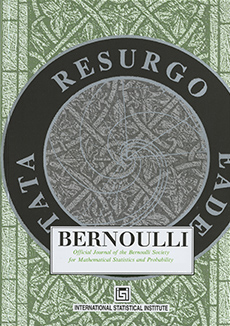Abstract
The theory for multiplier empirical processes has been one of the central topics in the development of the classical theory of empirical processes, due to its wide applicability to various statistical problems. In this paper, we develop theory and tools for studying multiplier U-processes, a natural higher-order generalization of the multiplier empirical processes. To this end, we develop a multiplier inequality that quantifies the moduli of continuity of the multiplier U-process in terms of that of the (decoupled) symmetrized U-process. The new inequality finds a variety of applications including (i) multiplier and bootstrap central limit theorems for U-processes, (ii) general theory for bootstrap M-estimators based on U-statistics, and (iii) theory for M-estimation under general complex sampling designs, again based on U-statistics.
Acknowledgements
The research of Q. Han is partially supported by NSF Grant DMS-1916221. He would like to thank Jon Wellner for encouragement and helpful comments on an earlier version of the paper. He would also like to thank anonymous referees for detailed comments and suggestions that significantly improved the article.
Citation
Qiyang Han. "Multiplier U-processes: Sharp bounds and applications." Bernoulli 28 (1) 87 - 124, February 2022. https://doi.org/10.3150/21-BEJ1334
Information





